fragile x syndrome
by georgia jarmolkiewicz
Causes
caused by an alteration (mutation) in the FMR1 gene where a DNA segment (known as the CGG triplet repeat) is expanded.
- Usually, this DNA segment will be reproduced from 5 to about 40 times.
- In people with fragile X syndrome, the CGG segment is repeated 200+ times.
- The abnormally expanded CGG segment inactivates (silences) the FMR1 gene, which prevents the gene from producing a protein called fragile X mental retardation protein.
- Loss of this protein leads to the symptoms.
- Both boys and girls can be affected
- Because boys have only one X chromosome, a single fragile X is likely to affect them more
Those Most Affected
- most common form of inherited mental retardation in males
- mainly affects males
- 1 in 4,000 males and 1 in 8,000 females
- occurs in all racial and ethnic groups
Symptoms
GIRLS
- mental retardation
- premature menopause or difficulty becoming pregnant.
BOYS
- large head size, a long face, prominent forehead and chin and protruding ears
- loose joints (joint laxity), and large testes (after puberty)
- hyperactivity, hand flapping, hand biting, temper tantrums and autism
- after they have reached puberty, further problems include poor eye contact, perseverative speech, problems in impulse control and distractibility
- increased chance of eye, orthopedic, heart and skin problems.
How Disease is Connected to Other Body Systems
- Nervous system mainly affected, involuntary actions are common and invasive (eg, spasms, hand flapping). Autism and mental retardation are common too, along with hyperactivity etc
- Reproductive system is often damaged in women (infertility/premature menopause) and in men (enlarged testes)
- Muscular/Skeletal system affected in boys: weak joints
- Testing
- Genetic material and dna can be anaylzed after child shows symptoms, as well as blood tests and cell analysis
Treatment
- no treatment for diease, only for symptoms
- special education
- anticipatory management including avoidance of excessive stimulation to decrease behavioral problems
- medication to manage behavioral issues, although no specific medication has been shown to be beneficial
- early intervention
- vision + hearing + connective tissue problems + heart problems when present are treated as they would be in a non-sufferer
Clinical Trials
- Seaside Therapeutics in Cambridge, Mass., have begun a clinical trial of a potential medication designed to correct a central neurochemical defect causing Fragile X syndrome.
- Many programs, in 10+ US states have recently began trials as government healthcare pressure to study Fragile X in recent years has increased.
- No studies yet have been conclusive.
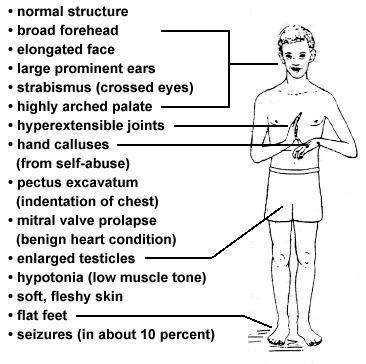
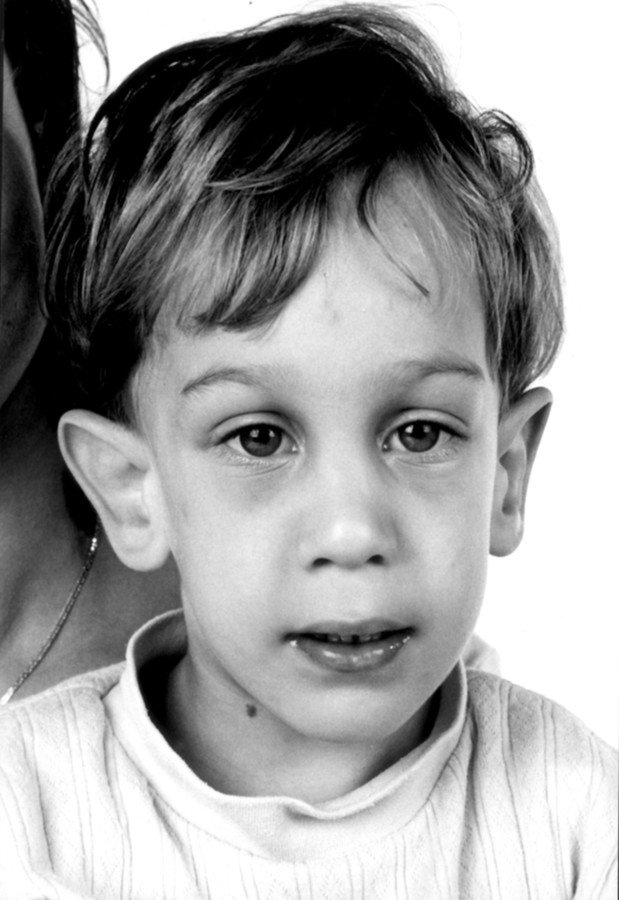
some atypical symptoms of fragile x
fragile X location on pair 23, X sex cells
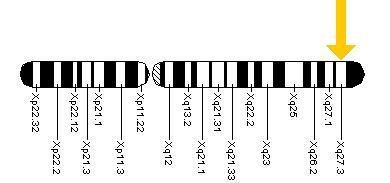
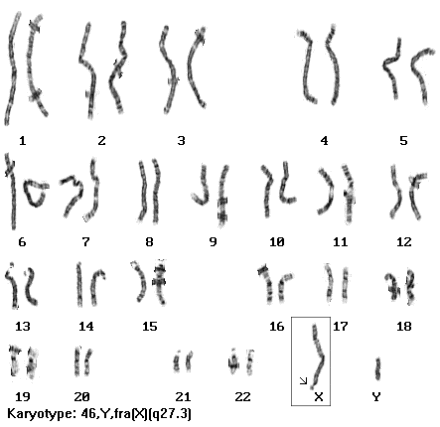
child with classic fragile x syndrome features: broad forehead, elongated face, prominent ears, slightly crossed eyes
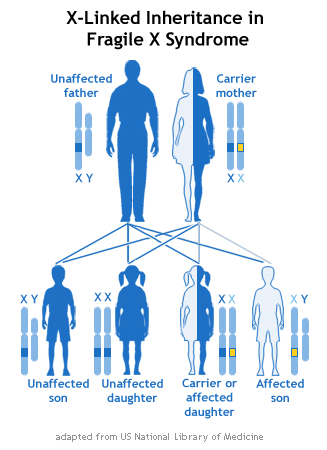
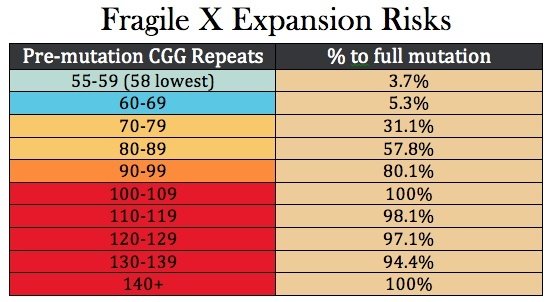
fragile x inheritance
CGG Repeats and the effect of this.
The higher the repeats, the higher change that the individual will suffer fragile x syndrome, and the symptoms they'll suffer
bibliography
- https://www.genome.gov/19518828#al-5
- https://fragilex.org/research/clinical-trials-opportunities-for-families/ongoing-clinical-trials-for-fragile-x/